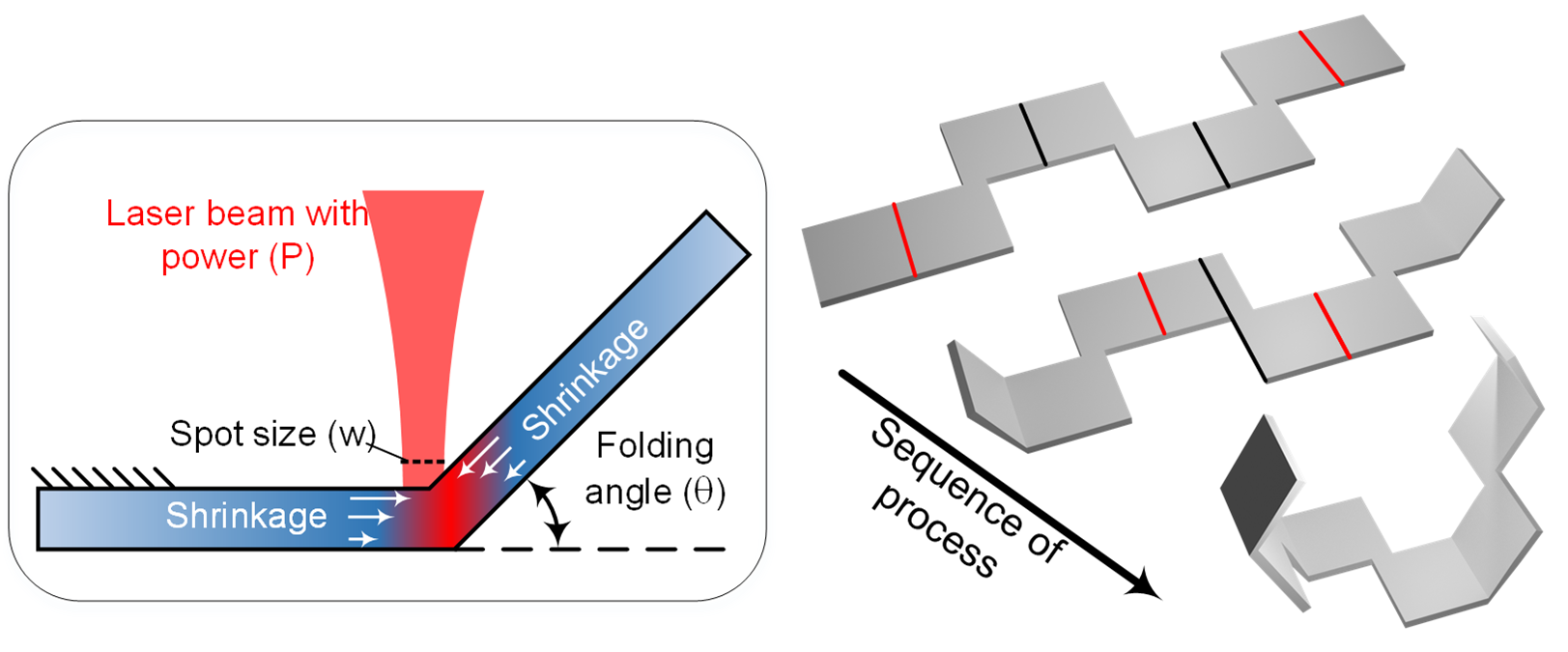Abstract
Origami-based fabrication strategies open the door for developing new manufacturing processes capable of producing complex three-dimensional (3D) geometries from two-dimensional (2D) sheets. Nevertheless, for these methods to translate into scalable manufacturing processes, rapid techniques for creating controlled folds are needed. In this work, we propose a new approach for controlled self-folding of shape memory polymer sheets based on direct laser rastering. We demonstrate that rapidly moving a CO2 laser over pre-strained polystyrene sheets results in creating controlled folds along the laser path. Laser interaction with the polymer induces localized heating above the glass transition temperature with a temperature gradient across the thickness of the thin sheets. This gradient of temperature results in a gradient of shrinkage owing to the viscoelastic relaxation of the polymer, favoring folding towards the hotter side. We study the influence of laser power, rastering speed and number of passes on the fold angle. Moreover, we investigate process parameters that produce the highest quality folds with minimal undesired deformations. Our results show that we clean folds up to and exceeding 90°, which highlights the potential of our approach for creating lightweight 3D geometries with smooth surface finishes that are challenging to create using 3D printing methods. Hence, laser-induced self-folding of polymers is an inherently mass-customizable approach to manufacturing, especially when combined with cutting for integration of origami and kirigami.









